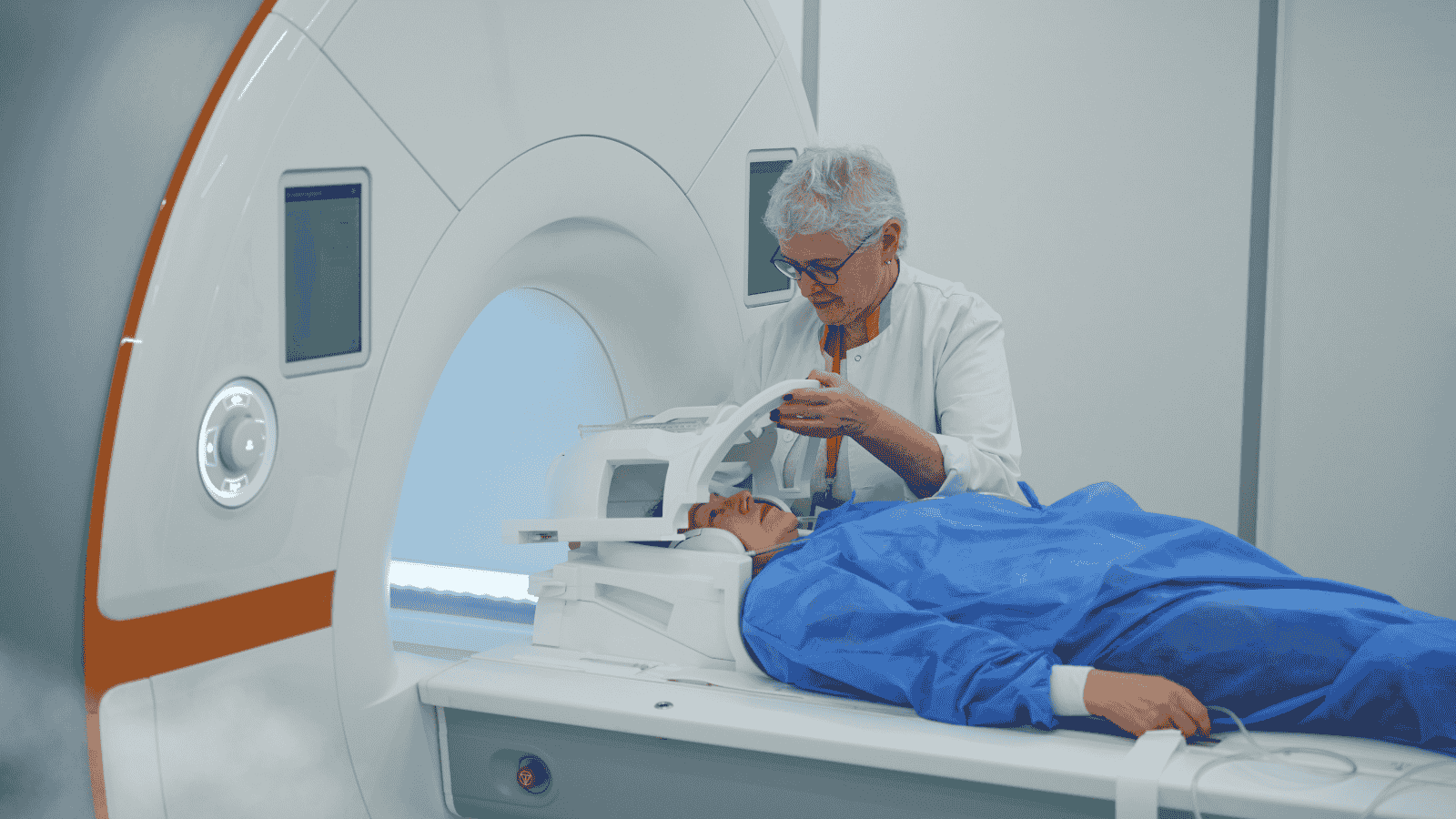
Cranial (Brain, Head, Neck) MRI
MRI (Magnetic Resonance Imaging) / 3-Tesla MRI is a non-invasive, painless, and hospitalization-free advanced medical imaging method that provides high-resolution images of the body using a powerful magnetic field, radio waves, and advanced computers with specialized software. Unlike direct X-ray imaging (radiography) and computed tomography (CT), MRI does not use potentially harmful ionizing radiation, making it a patient- and doctor-friendly imaging technique. In the near future, AI-supported MRI scans are expected to revolutionize the field by enabling faster imaging, reducing workload, and increasing efficiency. Artificial intelligence and machine learning show promise in scan planning, multidimensional data acquisition, clinical image interpretation, and personalized imaging.
Brain MRI and head MRI are performed using the same protocols and provide highly detailed images of all organs and structures within the head, primarily the brain. The scan typically takes 30 to 60 minutes. This method is particularly important for evaluating conditions such as headaches, dizziness (vertigo), balance disorders, head trauma, brain hemorrhages, brain vascular blockages (embolism), Alzheimer's disease, multiple sclerosis, epilepsy, preoperative brain surgery assessments, biopsy guidance, and various other neurological diseases. It is one of the most fundamental advanced imaging techniques used for accurate diagnosis, treatment planning, and monitoring of both acute and chronic conditions.
Why is it needed?
MRI is an essential diagnostic tool for detecting and evaluating:
- Tumors, tumor metastases, meningiomas, and other masses
- Tumor size, location, and spread to surrounding tissues
- Childhood tumors and cancers
- Brain edema
- Brain abscesses
- Cysts
- Congenital anomalies
- Hydrocephalus
- Aneurysms
- Venous malformations
- Cranial nerves (major nerves of the brain)
- Infections such as meningitis and encephalitis
- Brain hemorrhages
- Subdural hematomas
- Strokes and embolisms
- Dementia and Alzheimer's disease
- Multiple sclerosis (MS), hypoxic encephalopathy, encephalomyelitis, and other degenerative diseases
- Epilepsy (seizures) and other causes of convulsions
- Migraines and chronic headaches
- Causes of dizziness (vertigo)
- Eye diseases, tumors, and cancers affecting the eye
- Inner ear diseases
- Hearing, speech, and vision disorders
- Hypothalamic disorders
- Pituitary gland microadenomas, macroadenomas, and related diseases
- Pineal gland disorders
- Skull and facial bone abnormalities
- Head and neck trauma
- Spinal cord injuries
- Muscle weakness and tremors (tremor causes)
- Behavioral and cognitive disorders
- And many other conditions not listed here
For all information regarding MRI (Magnetic Resonance Imaging) / 3-Tesla MRI preparation, scan procedures, and advanced MRI applications, click here.